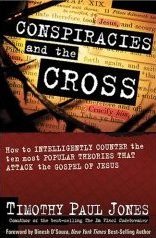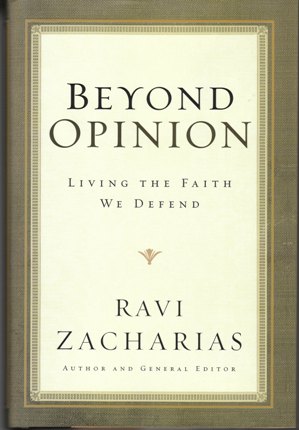How to Intelligently Counter the ten most Popular Theories that Attack the Gospel of Jesus
|
Timothy Paul Jones
Contemporary 
|
This book debunks the many modern theories that seek to discredit the
historical accuracy of the New Testament. These sensationalistic theories are
constantly appearing in best-selling books, on television, in movies and in
school classrooms, often claiming to be 'fact'. Dr. Jones distills these
theories to ten basic theories, of which any others are merely variations. He
addresses such issues as the origin of the canon, the dates of the New
Testament manuscripts versus the dates of the Gnostic writings, alleged hidden
meanings in the scriptures, etc. For each theory, he has sections on
…
You must read this book!
|
|
Frank Morison
Contemporary 
|
This book started out as an atheist's attempt to discredit Christianity.
However, as Morison's research progressed, he became increasingly convinced
that the historical evidence supports the claim that Jesus rose from the dead.
In this book, he carefully leads you through the facts and reasoning which led
him to change his beliefs.
|
Living the Faith We Defend
|
Ravi Zacharias
& the Staff of RZIM 
|
Lucidly explains and analyzes the prevailing philosophies of our day and
provides wisdom in confronting them effectively. Ravi begins with a compelling
defense of the use of apologetics in our Christian ministry. Other authors give
very insightful analyses of the challenges from Postmodernism, Atheism, youth,
Islam, Hinduism and New Age religion. The essays give very clear, concise, yet
thorough explanations of the various philosophies and insightful analyses of
their errors. One of the great merits of the book is that it focuses, not
merely on the intellectual aspects of apologetics, but also addresses how to
internalize and live out the faith we believe and defend. This book is not
without its faults, however. John Lennox, in his essay Challenges from
Science, apparently believes that an effective apologetic entails joining
with secular scientists in ridiculing young-earth creationists. He accuses
them of holding to "an unscientific form of creationist fundamentalism
constructed for the one purpose of crippling evolutionary biology," adding
"And here, be it noted, creationism no longer simply means belief in a
Creator but also in a whole package of additional ideas, the most dominant of
which, based on a particular interpretation of Genesis, is that the earth is
only a few thousand years old." It seems that Dr. Lennox lacks the grace
to show the "gentleness and respect" to his Christian brothers that 2 Peter
3:15-16 commands us to show toward unbelievers when giving a reason for our
hope. Moreover, he seems to be very unfamiliar with the purpose for this
viewpoint (which is emphatically not merely "of crippling
evolutionary biology") and blind to the fact that many young-earth
creationists have advanced degrees in scientific disciplines and know very well
what constitutes valid science. Surely he realizes that the term
"creationism" is often a shorthand for "Biblical creationism", which
entails more than simply belief in a nondescript deity who created the
universe. Biblical creationism refers to belief in the God of the Bible
and acceptance of the Biblical account of creation which is described as
occurring in six days—enumerated as first, second, third, etc., delimited
by "evening and morning", and memorialized in the fourth commandment using the
identical phrase "six days" to describe man's observance and God's creative
work (Exodus 20;9, 11). Apparently, Dr. Lennox regards a recent creation to be
one interpretation of Genesis, but not one that any honest scientist
could ever embrace. However, once Dr. Lennox is done belittling his
fundamentalist brothers, the remainder of his article is well written and
profitable—though not as compelling as it might have been had he applied
Biblical presuppositionalism and marshalled the many empirical evidences of a
recent creation to his cause. Despite this one blemish, the book is much too
valuable to ignore. I highly recommend it!!
Excellent, but Discernment is Required!
|